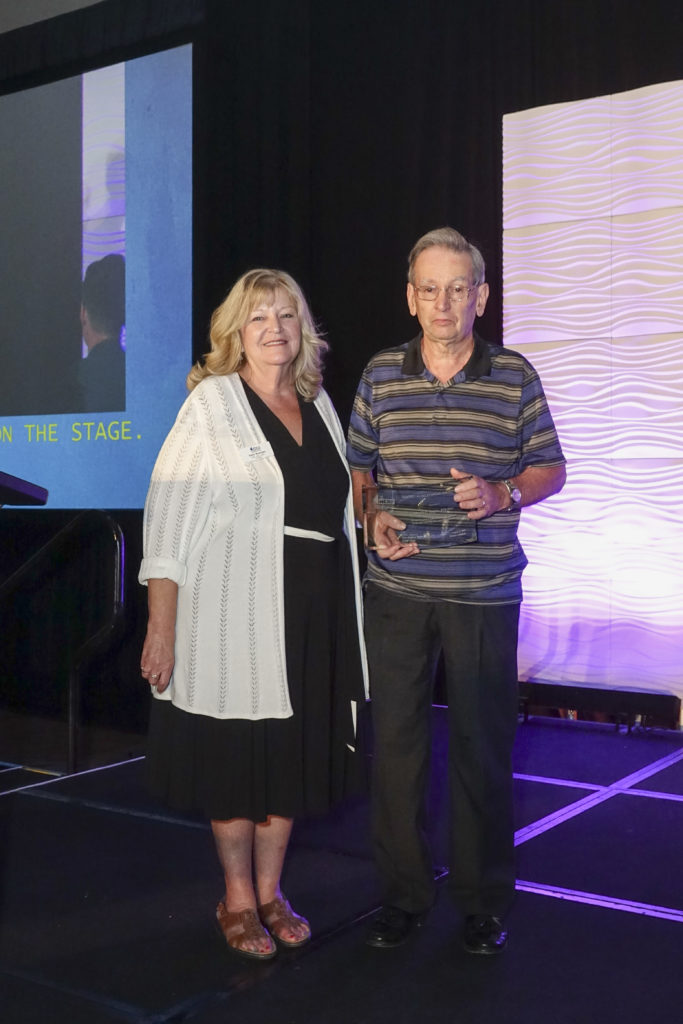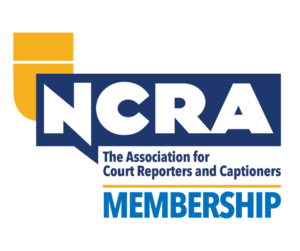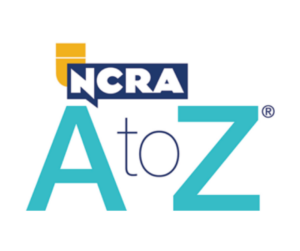
By Mervin Vaughn
The National Court Reporters Foundation (NCRF) presented the 2019 Santo J. Aurelio Award to Mervin E. Vaughn, RPR, from Runnels, Iowa, at this year’s 2019 NCRA Convention & Expo. He recently shared with the JCR Weekly details about his years of service as a reporter in Vietnam.
Having completed my court reporting courses and passed the CSR test, I was ready to begin my career. Classes were completed in November 1965. Since the Vietnam War was going full swing, I knew I would be called sometime. However, my notice didn’t come right away so I freelanced wherever I could pick up work and finally bought a new car to get around the state in. The car purchase was a Saturday, and my draft notice came the following Monday. Fortunately, I was able to pick up just enough work before having to report for duty to pay off the car and then store it in a garage for 2 years.
Basic was at Fort Leonard Wood in Missouri. This was a time when the draft decided to call up those getting older before they hit the age to not be called, so I was in with several college grads and older guys. During basic they tested everyone to see what skills they had. One of those tests was a typing test on a very old manual typewriter. While I was going as fast as I could, I noticed a sergeant standing over my shoulder. When the test was over, he asked what I wanted to be. I informed him I had been a court reporter prior and would like to do that. He sent me over to another building to see the staff there. They wanted to know what I thought I was doing coming over there. I informed them that the sergeant had sent me over. They said that, if he had sent me, they had better see why because he never sends anyone over. Apparently, my typing skills impressed him. Basic was completed and everyone was being informed where they would next report and what their MOS (military job) would be. The company clerk informed me I would be a 71E20 and was being assigned to Fort Hood, Texas. He said he didn’t know what a 71E20 was but he would look it up. Lo and behold, it was a court reporter. I was thrilled that the Army was putting me in a position that I was already trained for.
After a short leave home, I enjoyed a long bus ride to Fort Hood. Fort Hood is an armored divisions fort, so we had tanks, etc., running around. After getting settled into my new position, everything was going well. There was one other civilian court reporter already in the office, so we would share the trials as they came along. As well as being a court reporter, you were required to participate in calisthenics each morning and pull KP duty when assigned. The barracks were to be maintained in inspection mode at all times also. This required beds to be made so a half dollar would bounce on them and the floors polished to a high shine. The floors were concrete, so it took some doing to get a shine on them. Being an armored division, the floors were dyed red and then wax applied and buffed daily.
One day I was called in and told I was to report to a general at North Fort Hood for a special assignment. Reporting to a general was out of the ordinary for a lowly private second class. I was picked up and taken to North Fort Hood. That is where the National Guard did their summer training. I reported to the general and was informed that a soldier had been killed and there was going to be a special investigation into his death, and I would be reporting the proceedings. The general was very nice and appreciative that I was there.
After reporting the investigation, it was quite late. The general told his staff to take me to the mess hall and feed me even though it was closed. When we walked in, the mess sergeant demanded to know what we were doing coming in. Once he was informed the general had sent me there to be fed, he became very accommodating. After eating, the staff said they would drive me back to my billets. I mentioned that the general had said they might fly me in his chopper back, so they did and landed right beside my barracks. The other guys in the barracks thought someone important was coming in since it was the general’s personal chopper landing. Were they ever surprised when this lowly court reporter stepped off. The general later wrote a commendation letter to me in appreciation for my services.
Life then went back to the regular courts-martial cases for a while. It was just before Christmas in 1965, and I was eating in the mess hall when another soldier stopped at my table and looked at my name tag. I knew where he worked and asked him what he was doing. He informed me my name had come down on orders that morning to go to Vietnam. Needless to say, my lunch never got finished.
I reported back to my office and informed the colonel in charge that I would be leaving apparently. He became very upset and said he would see about that. About this time there had been a very young man murdered off base by a soldier. The other court reporter said she would not report the case because it could carry the death penalty. The case was referred to the military by the local authorities because Texas at that time did not have the death penalty. The colonel went to the base commanding general to see if he could get my orders cancelled. The base commander informed him he could not cancel them, but he could delay them for 90 days and no one could touch me during that time. This gave enough time for me to report the murder case and get it transcribed. Once it was completed, I was allowed to take a two-week leave home before shipping out to Vietnam.
After my leave, I reported to San Diego for processing to Nam. During this time the military was using commercial jets as well as ships to transport guys going to Nam. After processing, we were loaded onto buses and sent to the airport. Come to find out, they had no plane scheduled for us when we got there. The military proceeded to inform the airlines that they would unload the plane currently sitting on the tarmac and load us on instead. They had some very unhappy customers when they were informed their plane had been taken for us. We were in no hurry personally.
We landed in Hawaii to refuel but were not allowed to leave the plane. We also landed in Guam for refueling. Then we arrived in Nam. Stepping off the plane, I thought we had landed near the dump because it smelled so bad. Sure different than the fresh air of Iowa.
After processing, I was then assigned to a signal outfit. Once arriving there, they determined that they had no need for a court reporter but needed a legal clerk. Hence, I took over the duties of a legal clerk, which involved helping soldiers that were encountering legal problems back home with their spouses or financial institutions. This also involved pulling guard duty at night sometimes. Since my typing skills were beyond the other clerks, I was given the assignment of typing papers that could not have any mistakes on them. If you mistyped, you had to start over. We only had manual typewriters again. Everything must be in multiple copies also, so there was carbon paper to deal with. Copy machines did not exist then.
After about six months as legal clerk, the JAG (military legal office) discovered I was a court reporter and had me immediately transferred to them. Once again, I was reporting general courts-martial. In the military everything is transcribed and reviewed higher up. They needed five copies. The transcripts were on legal-size paper and single spaced. There was no transcript fee either. Using a manual typewriter and cutting five copies required real pressure on the key stroking. As a result, I was a pounder on my steno machine forever.
Being a court reporter, no one understood how you could capture everything that was being said. I think it brought some respect as a result. Other duties were still required outside the JAG office, such as guard duty and latrine duty, until you attained a certain rank. After attaining that higher rank, your name was removed from those duties.
Once again, during this time, I was required to report a murder one case. A soldier had killed another soldier during a fight. In both of the murder one cases, the defendants were found guilty and given life sentences. If they had received the death penalty, the transcript would have gone to the president because he has to approve such sentence.
One day in the mess hall, I saw that they had wheat bread for a change. Upon closer inspection, I discovered the wheat in the bread also had legs. We were lucky, though, because we at least had a mess hall and a hooch to sleep in. A hooch was a frame building covered in screen wire with a tin roof and was surrounded by a sandbag wall to protect from incoming fire. Bathroom facilities consisted of a multi-hole outhouse with half of a 50-gallon barrel beneath each hole. When you were assigned latrine duty, it was your job to pull the barrels very carefully with their contents and replace with an empty barrel. You then carried the removed barrel to a location away from the buildings and poured diesel fuel into the barrel and burned the waste. Luckily, you did not draw that duty too often. Showers were in rough-framed wooden buildings with an overhead tank. You tried to take your shower after the sun had warmed the water in the tank. Each floor of the hooch contained approximately 20 soldiers. The beds were covered with mosquito netting and you were required to take pills to help prevent malaria. When the monsoons were going, your clothes would mold even though they were inside. The poor guys in the field would have their clothes rot while wearing them. Being a court reporter probably saved my life because at that time they were sending almost everyone to the field, including college grads, etc.
About 30 days before my time was up, I, along with two captain lawyers, were assigned to be flown by chopper into a special forces camp to investigate a possible war crimes situation. We had to fly in because the roads were controlled by the Vietcong. We were not overly excited about that assignment, but all went well and we were back to our home base before nightfall.
As the time approached for my departure, I was asked if I would be interested in reenlisting. After declining, they then asked if I would like to go home and be discharged and then come back as a civilian in the same position. This I also respectfully declined as I had a job waiting for me back home as well as a fiancée. In exactly one year, I left Nam for good old Iowa. The rest is history.
















